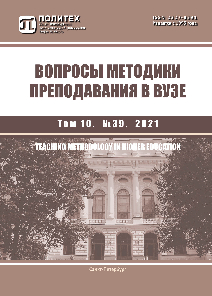Scenario approach in training future interpreters: mock-conferences
The article explains the choice of the scenario approach as one of the most effective tools for training future interpreters. According to it, the possible professional scenarios are placed at the heart of training, and the interpretation class emulates the real working environment. The macro-scenario includes a variety of micro-scenarios of real-life working situations, and each of them must be mastered during the training period. The article also analyzes the generic features of the training mock-conference and looks into ten types of mock-conferences: «Kids’ Forum», thematic conferences with consecutive interpretation (a conference with 'C' language, a conference with ‘B’ language, a conference with one ‘B’ and one or two ‘C’ languages, etc.), mock-conferences with simultaneous interpretation, institutional UN mockconferences, video conferences with European Commission, UN, Russian MFA, partner universities, and finally discussions before conferences. Viewed as a training method a mock-conference includes a preparation stage, an actual conference and a feedback stage. The interactive character of the model is realized through the joined effort of all parties to achieve a good result in the training. The combination of mock-conferences of different organizational structures brings forth the principle of methodological pluralism, which we consider beneficial for future interpreter training. The success of mock-conferences is ensured by the parameters of the given role-play. Thus, depending on the topic of the conference, the participants, functioning as a chair, or speakers, or the audience, are free to call themselves famous politicians, scientists, journalists, public personae, or just passers-by. Having once chosen the role, the participants are obliged to thoroughly familiarize themselves with this persona and act in their name in the discussions, expressing substantiated opinions consistent with the chosen persona’s views. In St. Petersburg School of Conference Interpreting and Translation we distinguish mock-conferences by the language (bi-lingual and multilingual), type of interpretation (consecutive or simultaneous, or mixed), materials used (improvised or recorded speeches, with or without visuals, etc.). The use of basic micro-scenarios in interpreter training enhances the quality and facilitates the graduates’ transition from novice to professional. The detailed analysis of mock-conferences proves that this kind of training can be realized only by practicing professionals. The model was tested in St. Petersburg School of Conference Interpreting and Translation, and over the decade has become part and parcel of the successful training of language professionals.



